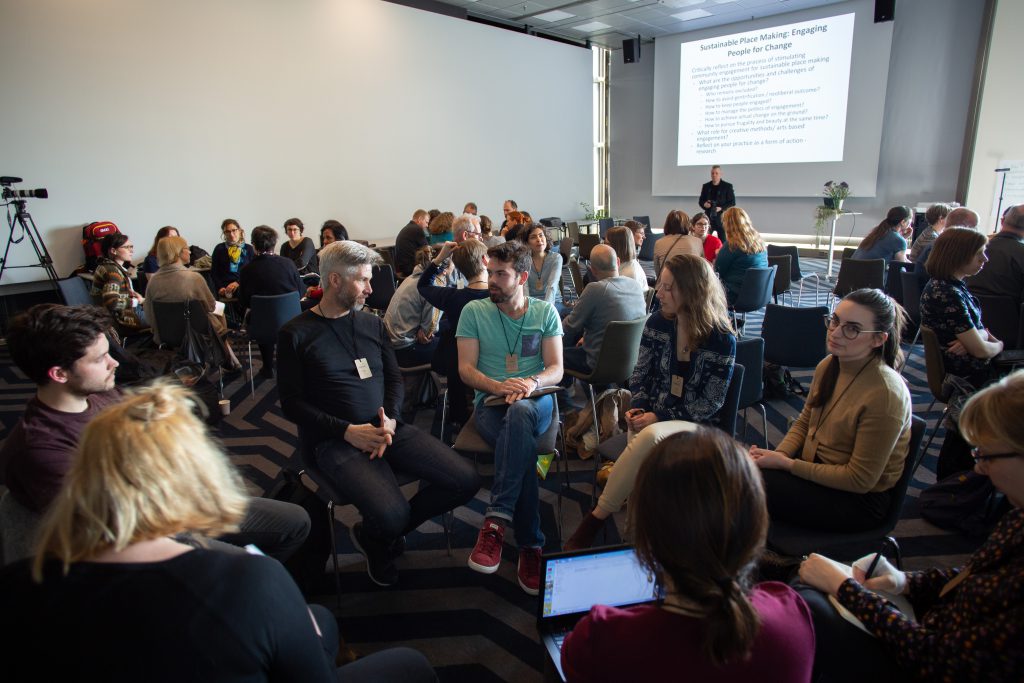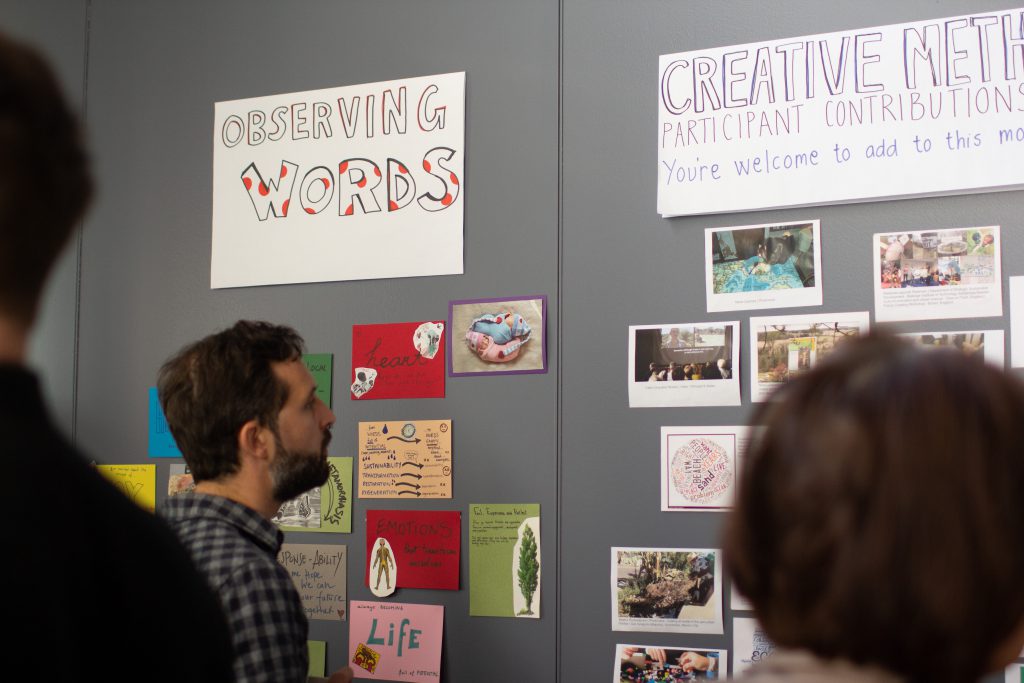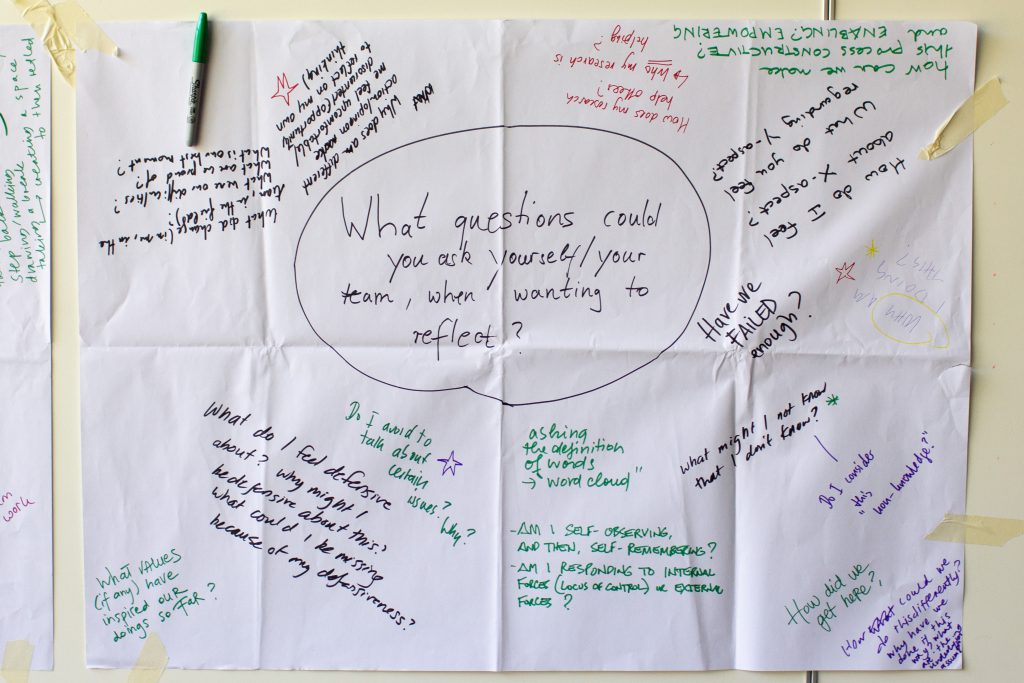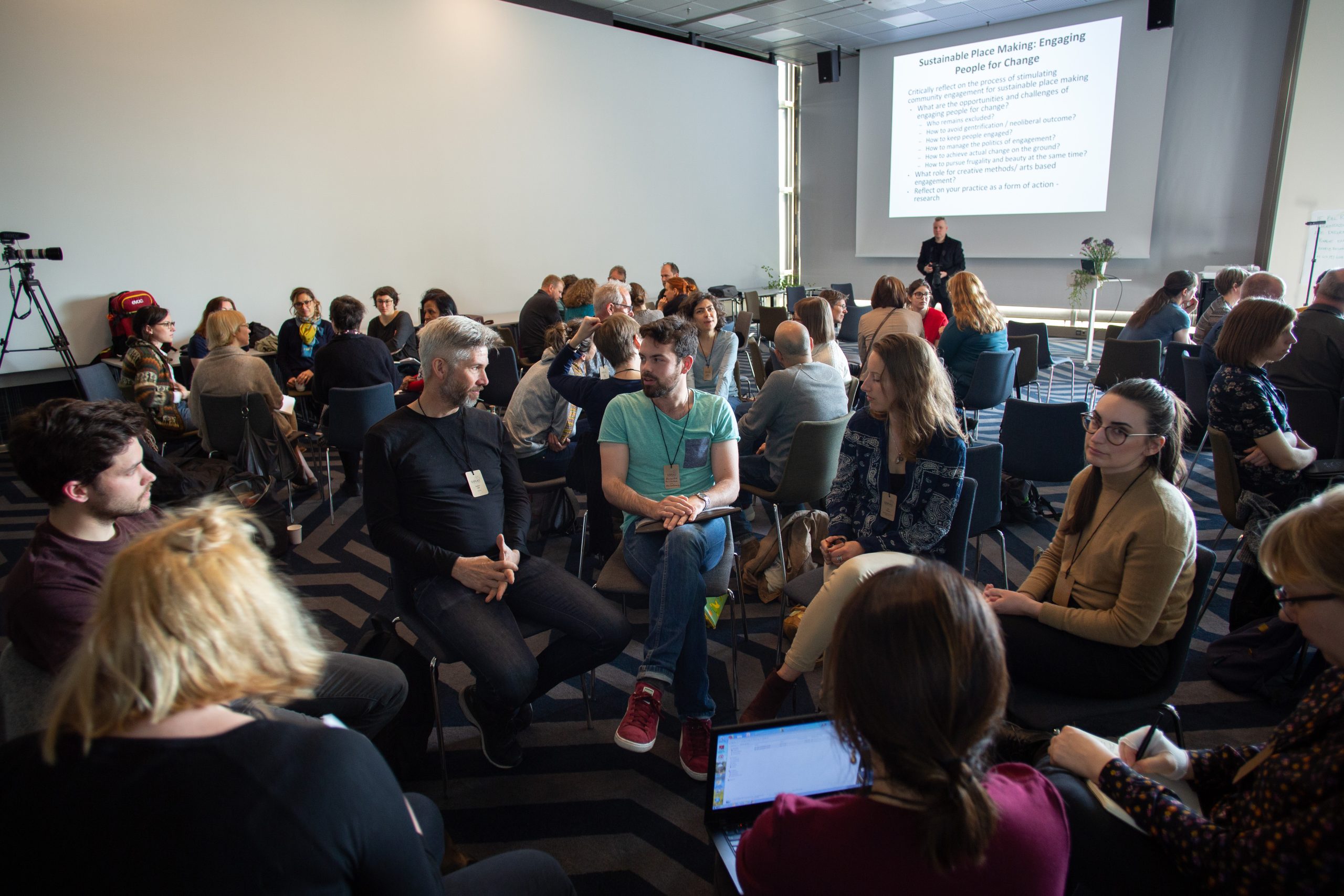From May 8 -10, 2019 the SUSPLACE Final Event was held in Tampere, Finland. The event addressed the theme of ‘Exploring Places and Practices through Transformative Methods’. To harvest knowledge and outcomes, we asked some participants to write a short blog post capturing their experiences. Find below the first blog, written by Rubén Vezzoni, Early Stage Research Fellow in MSCA ITN RECOMS.

ON THE ART OF NOT FOCUSING ON ANSWERS
Answers. That’s what you expect to get from a scientific conference. You go there with all the doubts and troubles experienced in your daily work and the only thing you unconsciously pretend to receive is an easy solution to them. Mencken, a famous American satirist, once said that “for every complex problem there is an answer that is clear, simple, and wrong”. Aside from the fact that he was a convinced elitist and a racist, which was indeed something quite common in his day, he was right in sharply pointing out what all researchers know, or should know. As much as we’d love to disentangle complexity into ready-made knowledge pills, this is just not consistent, not genuine, not valid.
What is then the right approach towards complex problems? Instead of focusing on answers, the attention should be put on the specific inquiries from which they derive. The SUSPLACE FINAL EVENT has been a sort of Socratic session. The right questions, rather than accurate answers, have been the key findings of the whole conference. The various formats adopted during the event – like dilemma sessions, the collective place-shaping puzzle, practice sessions, and the overall knowledge harvesting collection of insights – were all meant to establish reasoned arguments through a dialectical method.

A single question like “When and how should the research end and what is our role after our projects are over?” inspires an infinite number of other doubts concerning the role of the researcher, his relationship with the case study, the scientific approach to interpersonal relations, the balance of power when managing data and information, and so on. The richness of open debates about subtle inquiries lies in the fact that every participant is encouraged to contribute with its unique point of view. The discussion develops in a sequential analysis leading to a comprehensive understanding of the subject. For instance, in our example, the role of the researcher can be to build long-lasting relations in order to develop new projects, but also to deliver something tangible and beneficial for the communities and the places that have been studied.
While reasoning over this subject, one could be tempted to question the positionality of the researcher. How is your identity influencing your views? Following the same logic, the identities of others also influence your own perspective, and the same is true for the collective identities in which you’re embedded. But what about the context in which research happens? The structure itself encourages certain behaviours, like prioritising publishing on scientific journals over practical outcome. So how to use structuralism to understand the role of researchers? From this perspective, being all individuals interrelated in an overarching structure, our behaviour is contingent and it is more the result of social coercion towards a determined goal rather than individual free will. Moreover, the imbalance of power often reflects in a mismatch of expectations among researchers, supervisors, communities and people working on the ground. So is the researcher an insider or an outsider? I’ll stop here. That could go on indefinitely.

Similarly to a forest, which is much more than just a collection of trees, the reasoned truth arising from a debate is something more than the sum of all the different answers given to the same question. Complexity can only be comprehended through the lenses of relativism.

